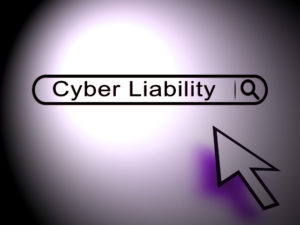
If you haven’t already experienced a data breach, you probably will soon. No one is safe. The majority (58 percent) of small and midsize companies report experiencing a data breach during the past 12 months, according to the 2018 State of Cybersecurity in Small & Medium Size Businesses (SMBs) report from the Ponemon Institute and Keeper Security.
The best course of action is to adopt a proactive approach to security and safeguard your IT infrastructure with solutions such as security risk assessments, next-gen managed firewalls, network and endpoint managed detection and response (MDR), and more.
However, implementing these solutions isn’t the only action you can take to mitigate the fallout of a potential data breach. It’s also wise to consider cyber liability insurance. If you aren’t already familiar with this type of insurance, here are the answers to some common questions that can help you determine whether it would benefit your business.
1. What is cyber liability insurance? Essentially, this type of insurance covers property losses and liability that might occur when your organization participates in tech-facilitated activities, such as collecting data or selling things online, according to the International Risk Management Institute.
The coverage typically includes (but isn’t limited to) liability for a data breach in which sensitive information (e.g., clients’ credit card numbers) gets exposed or stolen by cybercriminals.
2. What specifically does cyber liability insurance usually cover? Generally, it covers various costs associated with a data breach. That can include expenses related to the following, according to Nationwide:
- Data recovery
- Helping clients remedy personal identity theft
- Notifying customers about the breach
- Repairing damaged computer systems
- Legal fees and expenses
3. Why do businesses need cyber liability coverage? As mentioned earlier in this blog entry, data breaches have become commonplace and affect organizations of all sizes and across all industries.
Anyone who uses technology to do business is at risk, according to the insurance company Travelers. Due to the prevalence of cybercrime these days and how quickly cybersecurity threats are evolving, it makes a lot of sense to prepare for a potential breach and ensure an incident won’t financially devastate your company. The global average cost of a data breach is $3.86 million (according to IBM and the Ponemon Institute), so failing to take precautions could come at a high price.
4. How do I get started shopping for a policy? Before you start looking into the details of specific cyber liability policies, you should assess your company’s risk level and list all the costs you’d need covered in the event of a breach, according to the CIO article “What is cyber insurance and why you need it.” Then you can begin researching different insurance providers.
The Stratosphere team can help put together a risk profile for your business with a security risk assessment, which will identify both internal and external vulnerabilities. If you’d like to learn more and get an assessment, feel free to contact our team of IT experts by calling 877-599-3999 or emailing sales@stratospherenetworks.com.


